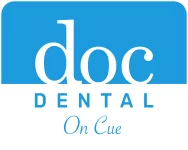3 Ways to Prevent Wear on Your Teeth

You can have a great dental hygiene routine and never miss a dental checkup and still be putting your teeth at risk for wear. Worn teeth are weaker and less able to resist the problems that cause toothaches and other kinds of urgent dental visits. Here are a few ways you can keep your teeth strong in addition to brushing, flossing and visiting us regularly!
Don’t Chew on Things You Shouldn’t
This may sound like the kind of advice that we would give to a child, but it applies to patients of all ages! If the backs of your pens and pencils are dappled with bite marks and your fingernails are ragged stubs, it’s time to make a change. While plastic, wood or fingernails may not feel hard enough to damage teeth, chewing on these materials a lot can wear down your tooth enamel and lead to toothaches. Chewing on ice is also a big no-no. Some people say the act of chewing helps them think. If that’s the case, we suggest opting for a sugar-free gum instead.
If You’ve Been Told You Need a Nightguard, Wear It!
Bruxism is a fancy dentist’s word for grinding or clenching your teeth. Many people clench or grind their teeth and don’t even know it, especially those who grind at night while they’re asleep. Considering the average human can exert about 160 pounds of force when they bite down, it’s easy to see how subjecting your teeth to this kind of relentless pressure can cause problems. Bruxism can cause toothaches, but also less obvious symptoms such as tooth sensitivity and worn tooth enamel, which makes your teeth more vulnerable to tooth decay, cracks, and chips. The dentist can check for signs of bruxism by examining your teeth and the muscles of your jaw. If you’ve been diagnosed with bruxism and have a nightguard, please wear it and prevent future problems!
Avoid Acidic Foods
Acid is a major enemy if you want strong teeth: it can eat through your teeth’s strong enamel, exposing the softer insides of your teeth and creating bigger cavities for bacteria to hide and grow in. If you’re continually bathing your teeth in acid because of what you eat and drink you may be setting yourself up for cavities and toothaches. Most people know that citrus fruits like lemons and oranges (and their juices) are highly acidic, but there are some other, sneakier foods that are also highly acidic, such as wine, soda (especially diet), pickles, cranberries and tomatoes. If you’re prone to decay, tooth sensitivity, or we’ve told you that you have weak enamel, we suggest minimizing these foods or brushing well after eating them.
